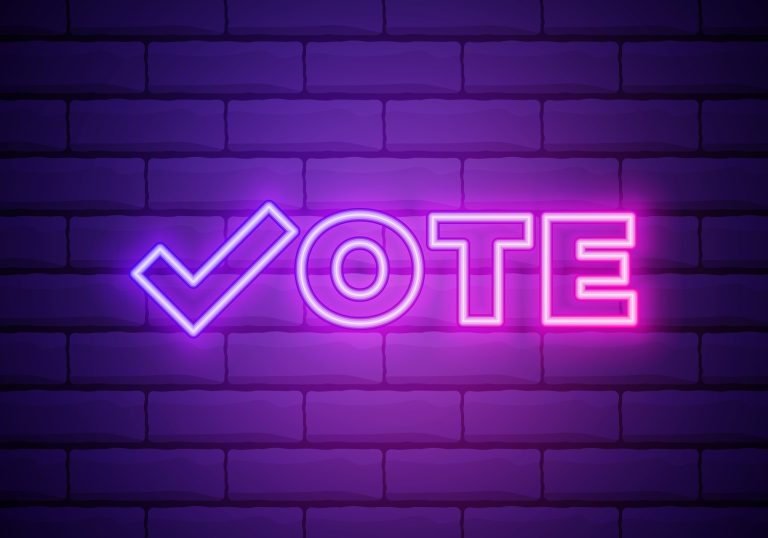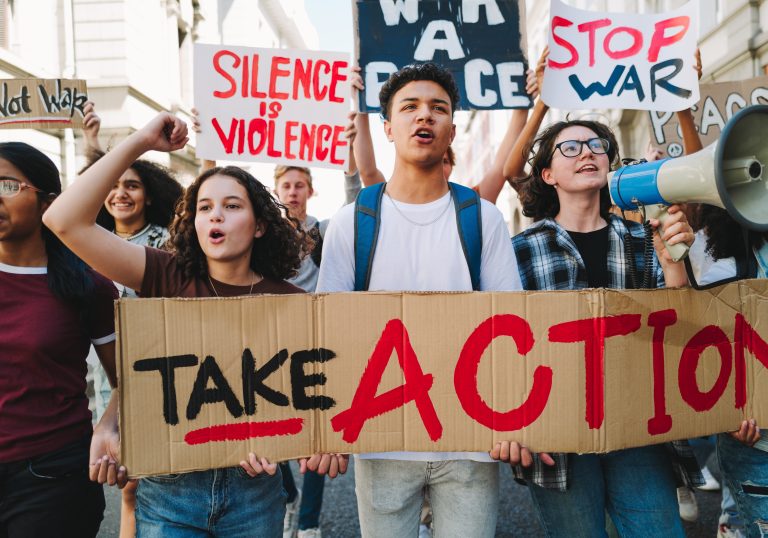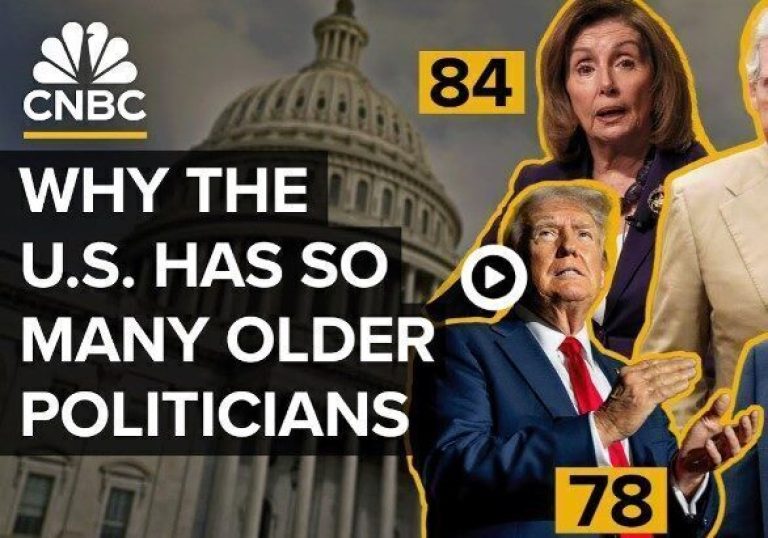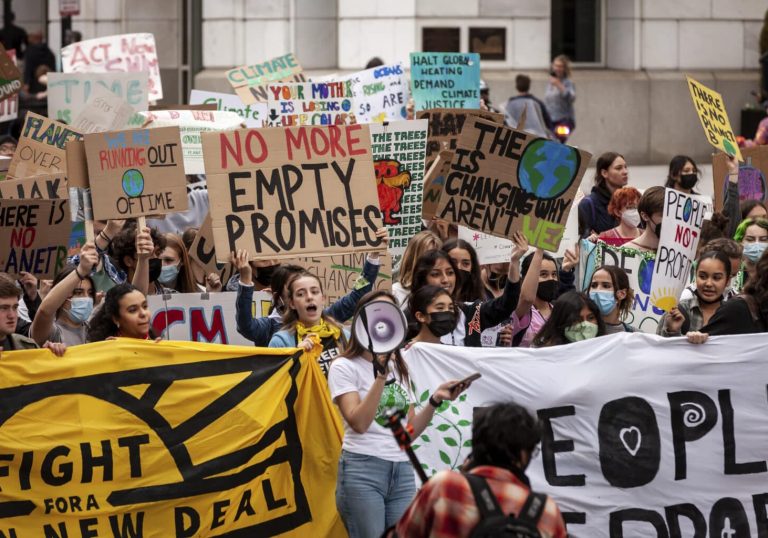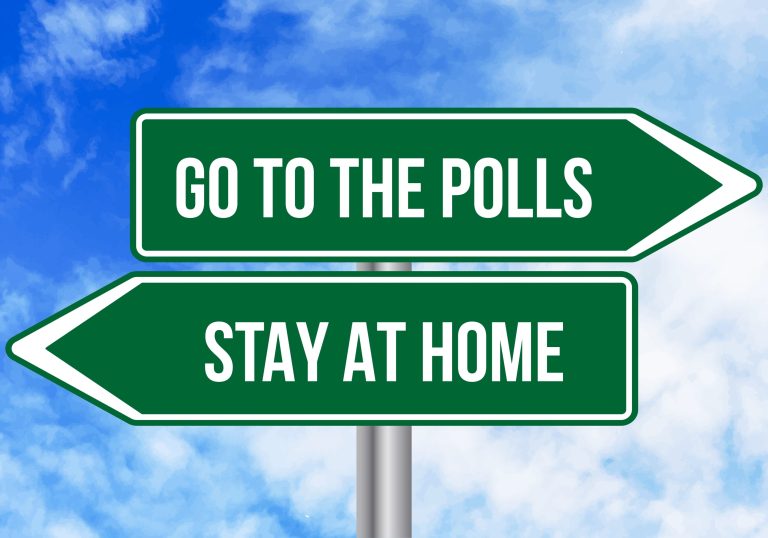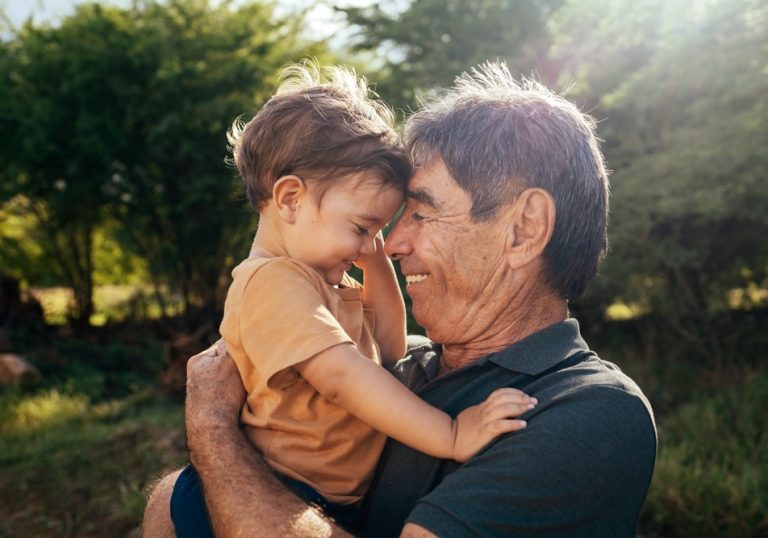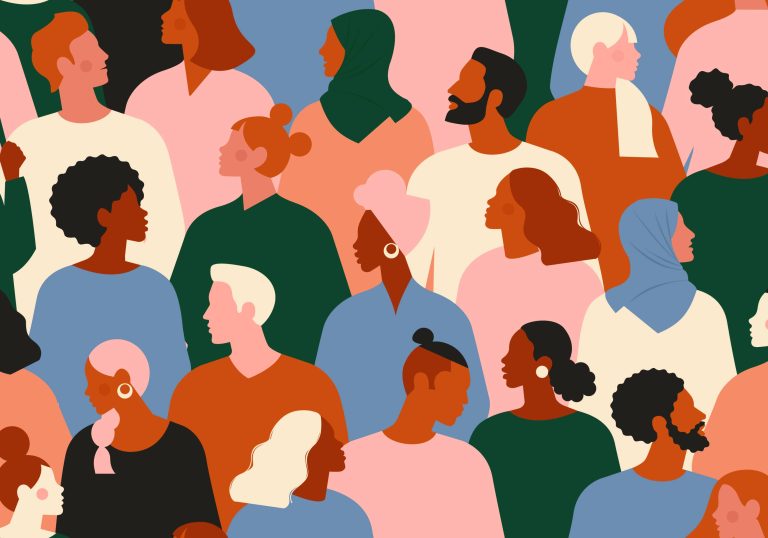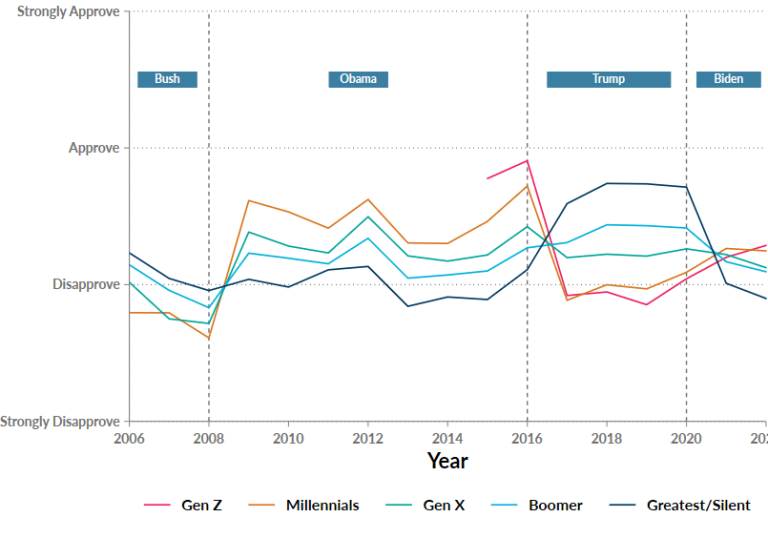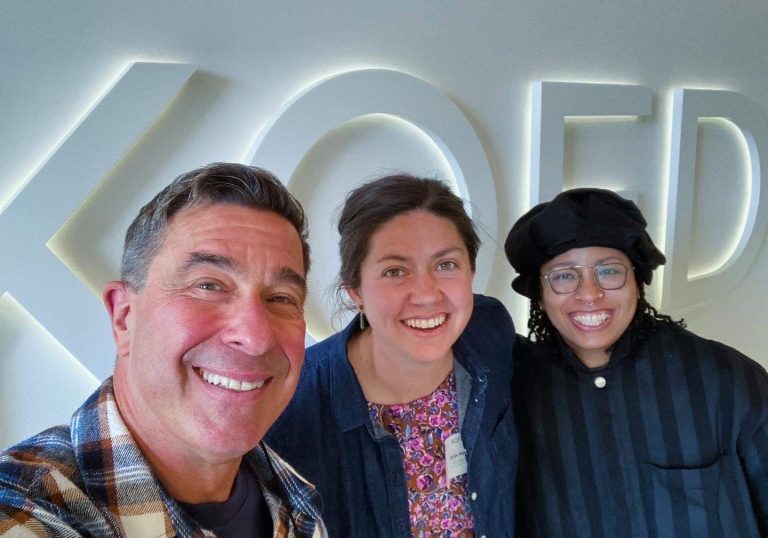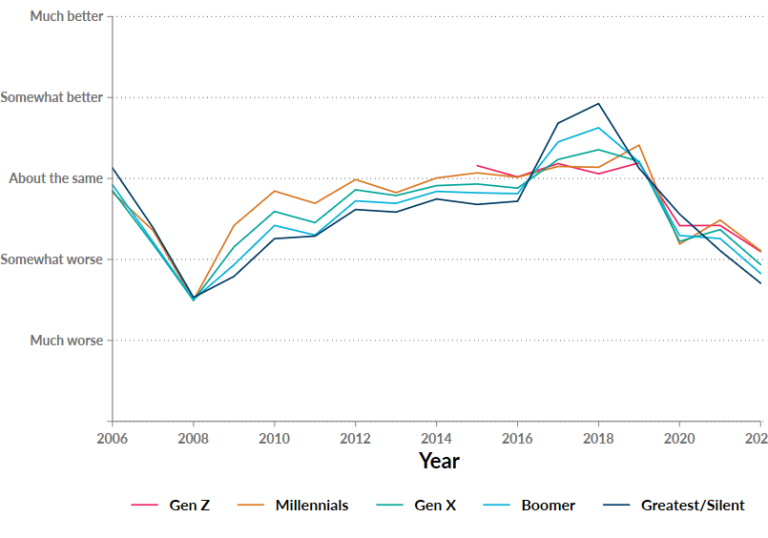2024 Election Vibe Check: Interviews with the Next Generation of Leaders in American Politics
To better explore the state of youth voices in American politics as we enter the 2024 Election Year, BIFYA is publishing a series of interviews with members of GenZ who are running for office across the country. In an era where the political sphere is undergoing transformative changes, we hope this series of interviews will bring to the forefront a diverse array of young political candidates and highlight their motivations, aspirations, and unique perspectives.
The views and opinions expressed in the following interviews are solely those of the individual political candidates and do not necessarily reflect the views of the Berkeley Institute for Young Americans or UC Berkeley. We aim to provide a platform for diverse perspectives. Any opinions, claims, or statements made by the candidates are their own, and we encourage readers to critically evaluate the content while respecting the principles of open dialogue and democratic discourse.
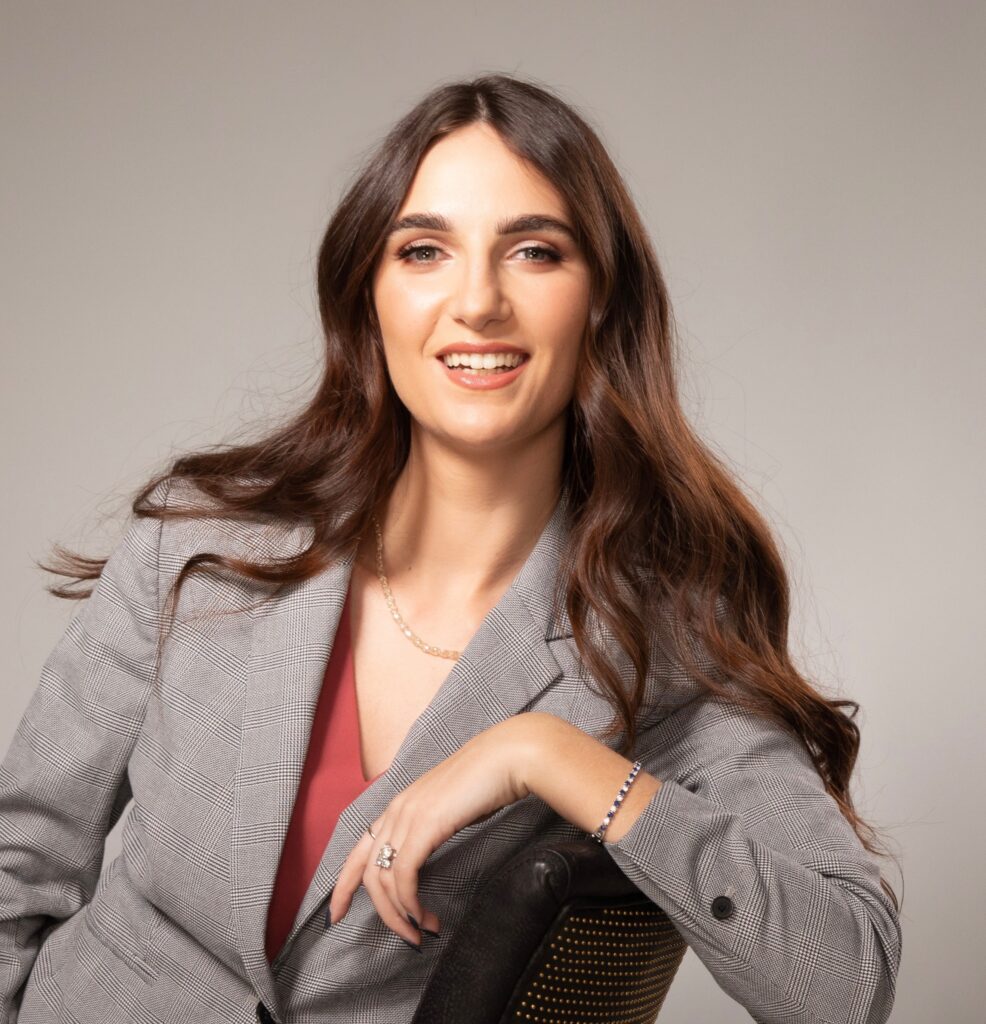
Cheyenne Hunt is running for Congress in California’s 45th Congressional District. She overcame generational obstacles to become the first in her family to graduate college, with dual degrees in political science and public policy. She went on to earn her law degree, drawing on her own experiences to defend domestic violence survivors in the Orange County courts. Hunt then made history as the youngest law clerk for Senator Amy Klobuchar. During her time working with the Senate Judiciary Committee, she helped construct the impeachment case against former President Trump and was instrumental in drafting and promoting legislation that advanced progressive causes. As a policy advocate, she has used her experience to organize grass roots action, draft federal legislation, and advise the White House on the most pressing issues of our time.
BIFYA: You’re running for Congress in California’s 45th District. Can you tell me about what made you decide to run?
Cheyenne Hunt: I think that we as a nation, and specifically we as young people, have been faced with a number of what feel like existential threats to not only our way of life, but quite literally our lives. When it comes to our way of life, we’re looking at an economic system where for young people, the likelihood that we will ever own a home is lower than any generation prior to us. Our prospects economically are frankly really bleak, and we are the first generation projected to not be able to have a quality of life similar to, let alone greater than, our parents. So that is one piece. And then when it comes to quite literal threats to our lives, we’ve seen serious backsliding when it comes to reproductive justice and the rights to bodily autonomy, which are in many cases and in many states life threatening. And we’ve also seen pretty unjustifiable inaction on the climate crisis, which has led to a point where we’re projected to go over a threshold that we cannot walk back from in our lifetime. And we’re already starting to see some of these consequences. And so for me, when I look at my particular community, my district, who our representative is and the system as a whole, I think that I see a place where we cannot afford to wait. Young people cannot afford to sit on the sidelines under the assumption that has been disproven through history, that all of these prior generations will be stewards of our future, good stewards of our economy, good stewards of our environment. That has not come to be true. I saw an opportunity here where there is a need for real advocacy, and I jumped in.
BIFYA: What new perspectives do you think you can bring as a younger candidate then?
Cheyenne Hunt: Our campaign certainly has a lot to offer in the sense that I’m the only Gen-Z woman running for Congress in the country and the first to ever do it. And if elected, I would be the first Gen-Z woman ever in Congress. And that is a key perspective that is sorely missing on Capitol Hill. And I also think one of the most undervalued perspectives generally is that of the young woman, which is often cast aside as invaluable or ill thought out. There’s a tendency to degrade me and my candidacy as that of being a TikTok star when, compared to the other candidates, I’m the most experienced person running for the seat, the only one with experience working in federal policy, working in the Senate, working in the White House. And I think a lot of that comes with the bias of being a young woman. And so there’s a unique perspective there. There’s a perspective that is missing on Capitol Hill, which is that of somebody who has been born into a situation where I have fewer rights than my grandmother and mother had. I think that this is a perspective that we definitely need to bring to the halls of power before it becomes too late.
BIFYA: I want to ask a little bit more about your policy agenda. I wonder if you could speak a little bit to what you see as the top priorities for both California and the country as a whole? And related, what do you see as the top priorities for young people?
Cheyenne Hunt: I think they’re pretty synonymous. Honestly, I think that the reason that they’re top priorities for young people is because they’re existential threats and they’re things that people are feeling regardless of generation. It’s just that we’re going to have to live with them for longer and deal with the consequences.
One of the biggest ones for me is protecting the institutions of democracy. That was something that just a few years ago a candidate talking about that everyone would be like, “wow, what does that even really mean?” And now it’s become common parlance because it is dangerous. And if we allow this backsliding into fascism, we are in a situation where every other fight is lost. We cannot meaningfully advocate for progress on any other issue if we have allowed the degradation of the right to vote, the degradation of the integrity of our system to a point where we cannot function as a representative democracy. And so ensuring that we are codifying strong protections for voting rights, that we are holding accountable radical and activist courts, and that we are really thinking critically about the attacks on free and fair elections, both by political actors with self-interest and also on the state level through gerrymandering and other really dangerous attempts to mess with election security.
I also think a lot about the economy because, again, it’s another situation where people are being disempowered. I also think this is an area where Democrats tend to cede a lot of ground and I think wrongfully so. When we look at legislation that has been passed by our Republican leadership, it’s been a generation of subscribing to that Reaganism idea of trickle down economics that has never in 70 years actually trickled down. And instead, we’ve seen growing wealth inequality, dwindling job prospects, lower buying power for housing, and young people and working families alike are now all really, really struggling in an economy that was not built for them. And so I talk a lot about the incredible power of this resurgence of the labor movement and ensuring that we allow our unions to retake their position as one of the most powerful political entities in this country and that we do not allow dangerous attacks on our unions who are thinking a lot about pay equity, raising the minimum wage, cost of living adjustments for a minimum wage. These are really common sense things that I think are long overdue.
And also, this is kind of niche but it’s key to that same point, we really need to talk about healthy free markets. We need to talk about monopolies and address all of the ways in which these corporate actors have been allowed to abuse and undermine this idea of a free market to be able to corner their markets and price gouge consumers in ways that are anti-competitive and unfair and now outright dangerous. Especially in the Big Tech arena, we’ve seen these companies just destroying competition, cornering the markets. And a handful of unaccountable billionaires have taken control over the means of communication that the vast majority of people around the world are using to connect with each other and get their information and their news. And that’s incredibly dangerous. And enforcing that is really key because, again, the fight for democracy, for freedom of information and against misinformation, so much of that is going to be fought on the Internet in the next ten years. I know young people have felt it in the ways that we have been allowed to be used as lab rats for the likes of Mark Zuckerberg to experiment on with our data and our privacy and our mental health. I think that a young person’s perspective is really key when it comes to regulating these not new and novel issues posed by things like Big Tech. We have to have somebody that’s lived it, that’s experienced and that understands these technologies if we want any shot at being able to regulate it. That was a super long winded answer because policy is my love language.
BIFYA: You mentioned a number of policy priorities and a number of different policy solutions. I think for a lot of young people some of these problems feel so intractable and they feel at a loss for how things will change. As a future potential elected official, where do you think you can make change through the legislative process? And then also for a young activist out there working on the ground on these issues, what do you think the right levers are for them to push in order to create change?
Cheyenne Hunt: I think that we see the fight of progress being fought on all levels. And I’ve experienced that at all levels as someone who came from the grassroots, the courtroom, the boardroom, the halls of Congress, and now on the campaign trail. There’s any number of ways to get engaged in this fight, and they’re all necessary. There is a real sense of dread and despair among young folks and the state of affairs that we are inheriting. And there hasn’t been good stewardship of our environment, our economy, our fundamental rights. And we’re going to have to just figure it out. And I think that for young people, it’s an act of resistance every single day to get up and choose to stay involved in one way or another or even to take care of yourself and meaningfully restore yourself on this journey of activism in defiance of that paralyzing dread. And I think that this next generation of activists is starting to figure that out. This is going to be a long journey. And I also think in general the kinds of things that we want to do, it’s not just going to happen through congressional action. It’s not just going to happen through executive action. It’s not just going to happen as a free market solution that we can innovate around. It’s going to have to be all three and it’s going to also have to come from the on the ground activists who are doing this work in their communities, too. It’s recognizing that we all play an indispensable part in this movement. and we have to be willing to get out there and take the risk and take the leap and do the work and know it’s going to be messy and long and hard and imperfect.
BIFYA: You’re known for your work as a lobbyist for Big Tech accountability. How has this experience influenced your platform and priorities in your campaign for public office?
Cheyenne Hunt: I think that for me, my experience working on Big Tech activism touches almost every issue area because, like I said, I think so much of the battle for public policy in the next ten years is going to at least have a part that is tied to Big Tech. They have inextricably intertwined themselves with nearly every aspect of our lives, how we get information, how we have conversations, how we do business. And they’re watching every single part of it and profiting on it. That’s their business model. I think my experience also instilled a sense of urgency in me that helped spur my decision to run for office right now, because there is not only a sense of kind of inaction, but a fundamental misunderstanding of the stakes of the issue on Capitol Hill. I learned that when I was working in the Senate and working as an activist, drafting this legislation and shopping it member to member trying to inspire the need for urgent action. And when you’re dealing with elected officials who go on record describing the Internet as a set of tubes that run underground and you’re trying to explain why data surveillance is a fundamental violation of the right to privacy and they think that the Internet is a physical net under the ground, you’ve got kind of a problem. That’s definitely influenced my platform a lot.
BIFYA: How do you plan to leverage TikTok and other online platforms for communication with your younger constituents? As an influencer, how do you plan on using social media in your campaign?
Cheyenne Hunt: So I think it’s interesting that I so often am described by the media as an influencer because if you get to the root of what that means in general and then in common parlance, influencer comes with a tie to selling product or influencing some kind of capitalistic motive. I want to reclaim it. I’m fine being an influencer, so long as it’s influencing others to take grassroots action to meaningfully get engaged in policy where it can make a difference in their communities. I plan on using it as a way that I’ve been using it, which is to continue to have conversations that I feel like they are missing from the dialogue and dig deep on certain policy issues, bringing that to an audience of younger folks.
What I will say is there’s this assumption that I must be using Tik Tok because I want to talk to young voters — My following is majority 45 plus. The vast majority of people who follow me are not young people. I think in that way it’s almost like a secret weapon. Right? Folks think that you’re just talking to the kids. You know, it’s the dancing app. And what people forget is that TikTok is outperforming prime time television for viewership three nights a week. This is where people are getting their news and information. And to build a following and to take it seriously and to communicate that way it’s a huge asset. So I definitely plan to continue leaning into it.
BIFYA: What are the particular challenges that running for Congress has presented as a younger candidate? And what lessons have you learned in your campaign so far as a younger candidate?
Cheyenne Hunt: One of the biggest challenges is in a post-Citizens United world, we live in a world where so much of the viability of a candidate is judged based on fundraising. And so much of what a candidate fundraises comes from established personal networks. And when you’re coming in as a Gen-Z candidate and not a career corporate attorney or someone that has spent a lifetime in a boardroom, it’s a very, very different starting point to go off of. And you’re really starting from square one. And you understand on a fundamental level why we have so many people in Congress from the exact same background, the exact same demographic. So for us, it’s like we’ve just been really scrappy and on the ground from day one and having to get really creative with the kind of outreach that we do, who we’re talking to, and how we’re going to fuel this grassroots campaign.
I am someone who comes from the Hill. I’m an attorney by trade, but I’ve always worked in public interest. I come from the Hill, working in the backrooms, drafting policy, doing the negotiation to try and get it passed. I’m much more a policy wonk. That’s my background. And we don’t have an electoral system that rewards that in a way. So that was a big shock for me. It’s also been incredible to see the kind of support that we’ve been able to build and the momentum that we’ve created because so many people feel the same outrage. And it’s not just young people. I think young people feel it in a unique way, but there’s a universal frustration with how far gone it feels. We’ve seen on both sides of the aisle frustration with how people in their nineties are in these positions when their mental faculties are clearly failing them. And so there is a movement right now for renewal. And I think that young candidates are in a position to really offer that alternative. And I’ve been lucky enough to be a part of that.
BIFYA: One of the things that comes up time and time again when we look at young voters in California is that especially among new, younger voters that are registering, a large percentage of them are registering as No Party Preference. I’m curious, are there things that you do differently to try and reach those voters, or is it mostly about trying to turn out registered Democrats?
Cheyenne Hunt: I think in general we’ve seen that when young people feel as though there’s a candidate speaking to them and the sense of dread, betrayal or hopelessness that they’re experiencing and offering a really authentic assessment of where things are and a strong shared sense of where things need to go, they turn out in huge numbers, regardless of party affiliation. There’s this universal political principle that anyone who counts on young voters is a fool. Young people don’t vote. And we saw the last cycle that young people stopped the red wave and they were decisive in a number of state ballot measures and elections up and down the ballot. And we’ve seen that all across the board because it’s political involvement on a level that we have never seen in the United States for young people. What we do know is they don’t turn out if they’re not spoken to and if they don’t feel heard. I think more than targeting based off of No Party Preference versus registered Democrats, it’s more so about are we reaching them and having a conversation where they feel heard and understood and like their pain has been seen. And I think that we have obviously a leg up in the sense that we’re not talking to them across the generational divide and hoping that they believe us. It’s my future, too. So I’ve got just as much skin in the game.
